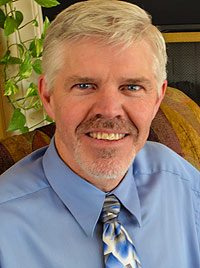Millions of men losing vitality as they age
Sacramento, Calif.- Are you among the millions of men who are losing vitality as you age – also called andropause (the male version of menopause) – the lowering of “androgen” (male-type) hormone levels, DHEA, androstenedione and particularly, testosterone?
Andropause is often missed by both patients and physicians; it is usually much more gradual than its female counterpart, menopause.
Andropause is less known and accepted as a medical reality; socially, it is more acceptable for women to talk about their menopausal symptoms; for men, the exact opposite is true.
In addition to, or because of this, men seek medical help far less than women.
A few statistics below bears witness to this:
- Men visit doctors 150% less than women.
- A March 2000 survey by the Commonwealth Fund titled, “Out of Touch: American Men and the Health Care System,” found that 24 percent of men did not see a physician in the year prior to the survey — three times the rate found for women (8 percent)
What are androgens? Androgens are substances producing or stimulating masculine characteristics. They are involved in immune function, development and maintenance of muscle and bone, and erythropoiesis, i.e. bone marrow-making RBCs. Low serum testosterone correlates with depression, accelerated arteriosclerosis and diabetes.
Some signs and symptoms of lowered androgen levels and function are:
- Body fat increase, especially abdominal
- Concentration difficulty
- Erectile dysfunction and decreased libido
- Ambition and work performance decreases
- Memory loss
- Mood disturbances, including depression, fatigue, irritability and loss of stress tolerance
- Muscle size and strength decrease, and endurance decreases
- Osteoporosis
- Blood glucose elevation and insulin resistance
- Restlessness and sleep difficulties
- Lack of energy
- Declining physical coordination and agility
- Cognitive decline (memory and concentration)
- Loss of self-esteem and altered states of well-being
- Skin changes (loose skin/wrinkles)
Testosterone peaks in early to mid 20s, then begins a slow average annual decline of: total testosterone by 1.6%, free testosterone by 2%, and bioavailable testosterone by 2.5%. Sex hormone-binding globulin rises roughly 1.6% per year. After age 50, 50% of men are considered hypogonadal – based on levels of bioavailable testosterone.
About 98% of T is bound to plasma proteins & is unavailable. About 2% of T is free, and represents almost all of its biologic activity. Of the bound testosterone, 40% is tightly bound to SHBG; the remainder is weakly bound to albumin. Bioavailable is free testosterone plus that which is bound to albumin. Aging increases the amount of testosterone that binds to SHBG. As testosterone levels fall, the liver is stimulated to increase SHBG, estrogens will also increase SHBG, increasing total serum testosterone to normal range, but in actuality, a relative deficiency of bioavailable testosterone often occurs.
Testosterone is further metabolized to: DHT or Estradiol.
Higher estrogen levels may, at times, be beneficial for menopausal women, but excess in andropausal men may be disastrous. Common causes of elevated estrogen in men are: stress and psychological factors, abdominal obesity, pharmaceutical drugs, alcohol consumption, increasing insulin resistance, impaired liver function, and zinc deficiency.

Explore additional topics from Dr. Godby, ND, MA at Natural Wellness.
As a naturopathic doctor for the last 18 years, I have witnessed the power of a preventative lifestyle and naturopathic medicine to transform the health and lives of thousands of patients.
Sacramento Naturopathic
2530 J Street, Suite 100
Sacramento, CA 95816
Phone: (916) 446-2591
sac-nd.com/dr-dennis-godby-nd-ma
(21+ years strong)
Welcome to the brighter side!
Get in front of local customers! 24/7 (365)






















